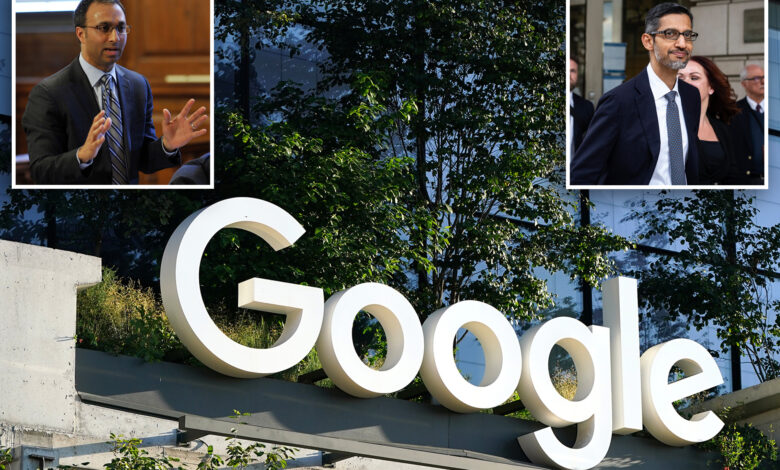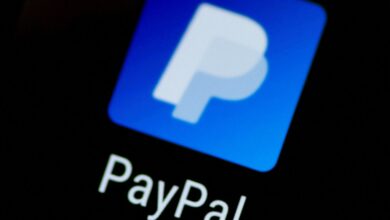Search giant broke antitrust laws in landmark case, judge rules

Google violated federal antitrust laws to build a dominant hold over the online search market, a federal judge said in a historic ruling Monday that could have wide-ranging implications for the future of the internet.
Judge Amit Mehta sided with the Justice Department, which argued throughout last year’s landmark trial that Google relied on anticompetitive payments to the likes of Apple, Samsung and AT&T – including $26.3 billion in 2021 alone – to ensure its search engine is enabled by default on most smartphones.
Mehta ruled that Google violated Section 2 of the Sherman Antitrust Act in two markets – general search services and general text advertising — finding that the default search engine deals “are exclusive and have anticompetitive effects.”
“Google is a monopolist, and it has acted as one to maintain its monopoly,” Mehta said in a lengthy opinion on the case.
The ruling marked the first time in more than two decades that the DOJ has won an antitrust case against a Big Tech firm — and could upend Google’s lucrative digital ad business, which pulls in more than $300 billion in annual revenue.
A separate trial will be held to determine potential damages.
The DOJ has yet to specify what remedies it will seek, though experts have suggested that the court could force Google to stop implementing default deals.
“This victory against Google is a historic win for the American people,” said Attorney General Merrick Garland. “No company — no matter how large or influential — is above the law. The Justice Department will continue to vigorously enforce our antitrust laws.”
Shares of Google parent Alphabet plunged 4.6% in Monday trading amid a broader stock market selloff.
Google plans to appeal the ruling, the company’s president of global affairs Kent Walker said in a statement.
“This decision recognizes that Google offers the best search engine, but concludes that we shouldn’t be allowed to make it easily available,” Walker said in a statement.
Antitrust watchdogs lauded Mehta’s decision as a long-overdue crackdown on Google.
“For over a decade, Google bent the entire digital marketplace to its will – resulting in higher prices, less competition, and a degraded internet for everyone,” said Sacha Haworth, Executive Director of the Tech Oversight Project. “When tech monopolies manipulate our economy, it hurts us all.”
The decision could impact other pending antitrust cases against the company, according to Christine Bartholomew, a professor at University at Buffalo School of Law who specializes in antitrust litigation.
“It’s rare to have a Section 2 case go anywhere. They’re just hard cases to win,” Bartholomew said. “We don’t see the government bring them very often, we certainly don’t see them be successful on them very often.”
The DOJ’s attorneys argued the payments were critical as Google built a massive 90% share over the online search market, dwarfing distant rivals such as Microsoft and DuckDuckGo.
Google denied wrongdoing, arguing the deals were merely fair compensation.
The 10-week trial featured testimony from an array of prominent witnesses, including Pichai and Microsoft CEO Satya Nadella — the latter of whom argued that Google’s default deals made the concept of user choice “completely bogus” in online search.
Pichai, along with Google’s legal team, argued that the public chooses to use its search engine because it is a better product than those offered by rivals.
Mehta found that default status worked as a “major, largely unseen advantage over its rivals.”
“The default is extremely valuable real estate,” Mehta said. “Because many users simply stick to searching with the default, Google receives billions of queries every day through those access points.”
The judge’s ruling is just one of several legal headaches that threaten Google’s business empire. A separate DOJ case accusing the company of maintaining an illegal monopoly over online advertising technology is set to proceed to trial this fall.
The DOJ is also pursuing an antitrust case against Apple, while the Federal Trade Commission has pending actions against Meta and Amazon.
Google faced intense scrutiny during the trial over revelations that the company had failed to preserve key evidence by allowing troves of employee’s chat lots to be deleted despite a court order.
The DOJ asked Mehta to impose sanctions against Google over its implementation of a policy that caused employee messages to be automatically deleted after 24 hours.
Despite blasting Google’s actions as “negligent” during closing arguments, Mehta declined to impose sanctions on the company over its conduct – arguing they would “not move the needle on the court’s assessment of Google’s liability” in the case.
“The court’s decision not to sanction Google should not be understood as condoning Google’s failure to preserve chat evidence,” Mehta said. “Any company that puts the onus on its employees to identify and preserve relevant evidence does so at its own peril.”




